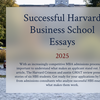Hornstein and other ROTC students blame the prevalence of stereotypes for intensifying emotions during last April's debate over the presence of ROTC on campus.
The Undergraduate Council voted last spring to recommend that the Faculty of Arts and Sciences bring ROTC back to campus in order to make the program more accessible to ROTC students and to allow Army cadets to receive the full scholarships denied them because Harvard is not a host school.
The council resolution angered many Harvard students who argued that the ROTC program should not return to the Harvard campus because the armed forces do not allow gays into their ranks.
The Council Reverses Its Decision
On April 30, 1989, after a week of emotional protests, the council reversed its initial decision. Citing its constitution, which requires the body to fight against discrimination on the basis of sexual orientation, the council voted not to call for the return of ROTC. The Faculty Council is currently debating whether to allow ROTC to use Harvard facilities.
The objections to ROTC were picked up at MIT last week, as 1500 students and faculty members signed a petition calling for the school to "sever all ties" with ROTC by 1994 if it continues to deny scholarships to gay students.
Harvard ROTC students say that the "personalized" atmosphere of last year's council debates exacerbated the problem of stereotypes by emphasizing notions of them as fringe militants.
"Contrary to what most people think, ROTCs are very much in the mainstream," Hornstein says, arguing that stereotypes still exist.
But as a result of the debate over ROTC, cadets and midshipmen say they were still forced to confront the issue of homosexuality in the armed forces by questioning their own values.
"I felt kind of hurt," Mancuso says of last year's controversy. "When you're committed to something and people react to it, you draw inward."
Mancuso says that he was forced to question his values and says he "does so continually." Though he had to "struggle," he says that he finally concluded that participating in ROTC was still "the right thing to do."
"It's never easy to accept the way the military...is set up," Mancuso says. "I continually question the role of the Army...but I'm not cynical about it."
But even while they contemplated the significance of their ROTC participation, virtually all ROTC students say their greatest comfort during the debates last year was their pride in the program.
Doherty said last year's controversy "made [him] proud to be doing ROTC."
"There was increasing morale among the Harvard students [in ROTC]," Doherty says. "We tended to pull together."
Read more in News
Spring Facelift in the Works For Indoor Athletic Building












